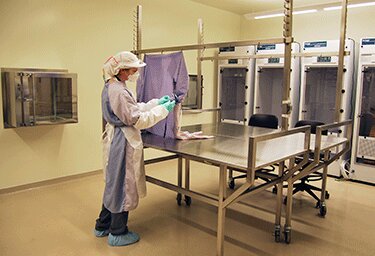 Why are investigations necessary?
Why are investigations necessary?
Investigations allow a collection of facts surrounding all unnatural or unexplained deaths; these facts aid the medical investigator to determine the cause and manner of the death. Investigations also aid in the determination of possible environmental hazards, job safety violations, consumer product dangers and public health threats.
Does the family pay for any medical investigator services?
For cases that fall under OMI jurisdiction (please see: Reportable Deaths), families pay nothing for Medical Investigator services or for the transportation to Albuquerque for autopsy. This also includes grief services. Families may be billed for the transportation to the funeral home they select. Consultation Autopsies can also be requested at the expense of the requestor, for more information please see: Consult Autopsy.
What happens during an investigation?
The investigation will start at the location of the death. The police will call in specially trained medical investigators. The investigator will talk to family members, witnesses and others, work with the police in identifying features of the death, obtain medical histories and records, and photograph the scene of the death. The investigator will authorize the removal of the body to a location where an examination will be conducted.
How are the bodies identified?
Often identification has taken place at the scene of the death. In cases where individuals remain unidentified, or where identification is difficult due to the condition of the body, fingerprints, dental records, and body X-rays are used, in addition to the autopsy evidence, to identify a person.
Can a medical investigator case still be an organ or tissue donor?
Yes. Once family members have expressed interest, the Lions Eye Bank and New Mexico Donor Program coordinators work closely with the Medical Investigator, and will review the appropriateness of the organ harvest with the Medical Investigator before allowing family members to formally consent to the donation. Procedures to obtain organs and tissues are done within hospital operating rooms, and not at the Medical Investigator's office. Being the victim of a homicide or other traumatic death does not preclude being a donor. All cases for organ donation require family consent.
How are findings of the investigation made available?
In all cases, the death certificate will be signed at the conclusion of the investigation. The cause of the death and the manner of the death will be on the certificate. Formal reports are available usually eight to twelve weeks after the final diagnosis has been made, although some may take longer.